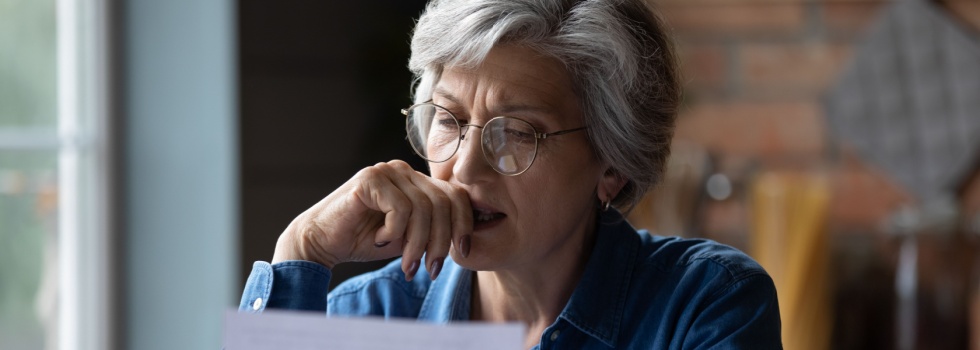
Using your gifting allowance effectively could mean you’re able to leave your children or grandchildren a significant, tax-free gift behind in the form of a £1 million pension. Discover the steps you can take to reach this goal.
With auto-enrolment now in full force, the topic of saving for retirement has never been more relevant for younger generations. Research has suggested that most people aren’t saving enough to achieve the lifestyle they want when they retire, indicating that more than a few future retirees will experience a shortfall, with past research from Hymans indicating a UK-wide shortfall of £5 trillion.
Whether you’re a parent or grandparent, using gifting rules and tax efficient saving schemes could help you secure a child’s future once they finish work or help get them on to the property ladder.
Previous research from Aegon indicated that 12 million people weren’t saving enough to provide the income they require in retirement, with many incorrectly estimating the sums required to generate an income in retirement. The firm’s analysis found that people on average earnings required a pension of £301,500 to maintain their lifestyle in retirement. Future retirees that are planning to use their years after work to travel and explore new hobbies without the restrictions of work will need significantly more.
With the rising cost of living, the challenges of getting on the property ladder and student debt increasing, helping children and grandchildren experience long-term financial security is becoming a common goal. The good news is that with a bit of forward planning it is possible to help your child or grandchild have the means to purchase a property in adulthood or even secure them a £1 million pension.
Rather than leaving your loved ones an inheritance, which may be subject to Inheritance Tax (IHT), you can use your money to help children build wealth while you’re alive. It gives you an opportunity to firstly leave a larger legacy and to see your loved ones enjoy your generosity while you’re still with them. With IHT reaching record levels last year, it’s an option that’s worth exploring.
Laura Suter, Personal Finance Analyst at investment platform AJ Bell, said: “Parents or, potentially more realistically, grandparents can save on their inheritance tax bill and pass substantial sums to their children or grandchildren by making use of lucrative annual gifting allowances.
“Figures released recently showed record levels of inheritance tax were paid last year, topping £5.2 billion. As more and more people are caught in the net of inheritance tax, it’s more important than ever to make use of the allowances the Government hands you.”
Using your gifting allowance
If you’re worried about your children and grandchildren facing a significant IHT bill when you pass away, using your gifting allowance wisely can help to put your mind at ease. It’s a way for you to pass on substantial sums over time without being subject to IHT.
To begin with, your annual gifting allowance is £3,000, this is money that will always be free from IHT. Should you decide to gift over £3,000 annually, there’s the seven-year rule to think about. Should you die within seven years of a monetary gift being received that went beyond the gifting allowance, IHT may need to be paid.
By making full use of the annual £3,000 gifting allowance to help children, AJ Bell has calculated that families could save £43,000 in IHT if both parents and grandparents use it to build wealth over an 18-year period.
What to do with the gifted money
According to the research from AJ Bell, if both parents and grandparents maximise their gifting allowance from the first year of a child’s life right through to reaching 18, the child will have accumulated £108,000 before they even leave compulsory education. With this in mind, how should you hold this money to ensure it benefits them in the long-term?
There are two potential options to consider, a pension and a Junior ISA, depending on how you want the money to be used and accessed.
Junior pension
You can start saving for your child’s future right away with a pension.
For children, contributions to a pension benefit from 20% tax relief up to a maximum annual contribution of £3,600. That means if you contribute £2,880 on behalf of your child or grandchild, they will receive a tax relief of £720 (which is effectively ‘free money’). AJ Bell’s figures show you end up with a sum of £64,800 over an 18-year span. Assuming returns of 5% after charges, your child’s pension will have reached £105,197 before they start their working life.
Without any further contributions, AJ Bell’s figures indicate it will take 46 years for the pension to reach the £1 million milestone, allowing your child to comfortably retire and enjoy their later years by the age of 64.
Of course, there is no guarantee that this will be the actual amount that will be in your child’s pension. A range of different factors, including rate of return and charges levied, have an impact and need to be considered.
Laura Suter comments: “Given the growing savings gap in the UK, a £1 million pension pot is an amazing thing to create for a child and gives them one less thing to worry about as they struggle with student debt.”
Of course, with the right financial knowledge instilled, the child’s pension should continue to grow, for example, through workplace contributions. However, one area to be mindful of is ensuring that they don’t end up breaching their Lifetime Allowance on their pension. This is currently set at £1.03 million but it is a figure that will rise alongside the cost of living as it is index linked.
Junior ISA
If you want to ensure your child or grandchild has a significant financial buffer before they reach the age of 18 but don’t want the restrictions of a pension, a Junior ISA could prove to be the better option for you. Rather than having to wait until retirement age, the child would be able to access the money once they reach adulthood, making it an excellent option for providing support to get on the housing ladder.
Junior ISAs can be used from birth up to the age of 18, with an annual contribution limit of £4,260. If you only used your £3,000 gifting allowance to make yearly deposits in an account that benefitted from 5% interest rates, the sum would total £87,664, which would be tax free to withdraw. Taken out at 18, the Junior ISA would provide a sizeable deposit for a home. Alternatively, if the account was left accumulating interest with no further deposits for a further decade, it would reach £144,383, AJ Bell’s calculations show.
Get in touch with us to discuss the most tax efficient way to gift and maximise your legacy with securing your children or grandchildren’s future in mind.




